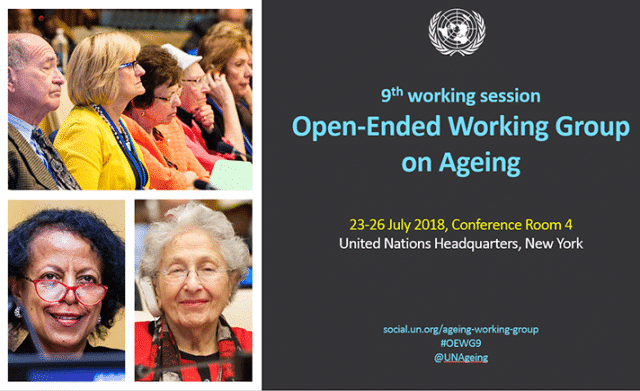AGE and a strong delegation of our member organisations took part in the 9th session of the United Nations Open-Ended Working Group on Ageing in New York from 23 to 26 July 2018. The meetings brought together UN Member States, civil society and national human rights institutions to examine how to enhance the enjoyment of human rights by older people worldwide. It offered the right momentum for non-governmental organisations (NGOs) to give greater visibility to violations of older persons’ dignity.
Established in 2010, the UN Open-Ended Working Group on Ageing (UN OEWG) is mandated to consider the international framework on the human rights of older persons, to identify possible normative gaps and discuss how to best address them, including by considering the feasibility of further instruments and measures.
The themes of this year’s OEWG session – autonomy and independence and long-term and palliative care, as well as normative elements around last year’s topics, equality and non-discrimination and violence, abuse and neglect – were extensively covered through panel sessions and more than 15 side events across the four days of the session.
Growing civil society involvement
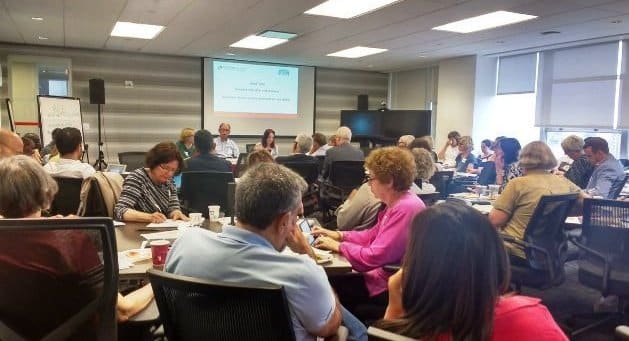
GAROP launched a joint statement in which civil society welcomed the shift of the OEWG towards a more substantive debate and urged for even more effective and productive discussions to advance the collective understanding of the human rights of older persons. This statement was consistently cited and supported by civil society organisations throughout the session.
The increasing commitment of civil society to human rights discussions was also reflected among AGE members. Over the course of last year, eight additional AGE members got accredited to the UN OEWG, bringing the number 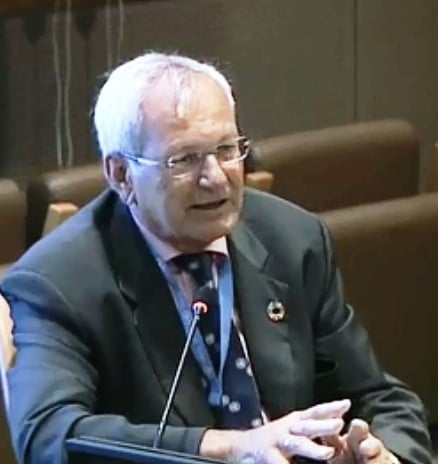
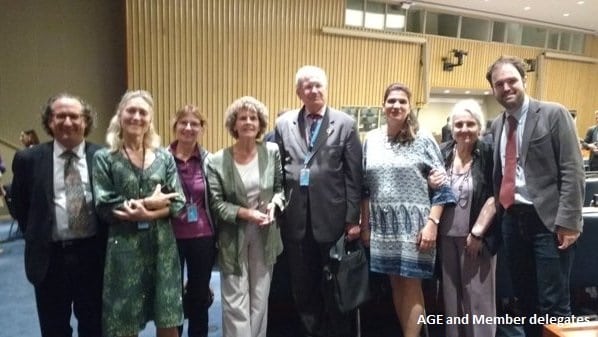
We thank our members for their active and fruitful involvement which enabled the discussions of the OEWG to be better informed and guided by the views and experiences of older people. We will invite more members to join the new call for accreditation that should open at the beginning of 2019.
The added value of engaging civil society in an effective debate on older persons’ rights and dignity was pointed out on many occasions during the meetings, including during the opening plenary session by the EU representative, Johan Ten Geuzendam (European Commission, Directorate General for Justice). Mr Ten Geuzendam referred to AGE’s work when explaining the work done by the European Union to promote older persons’ rights, in particular to two events co-organized by AGE:
- Expert working group on European Expert and Stakeholder Meeting on the human rights of older persons on 12-13 April 2018
- Our joint workshop on Protecting the dignity of older people in need of care requires good working conditions for professionals on 5 June 2018
Building on AGE advocacy work
The OEWG meetings were for AGE and its members the opportunity to showcase and build on the intensive work we have done so far to promote older people’s rights, including on the outcome of AGE Annual Conference in June.
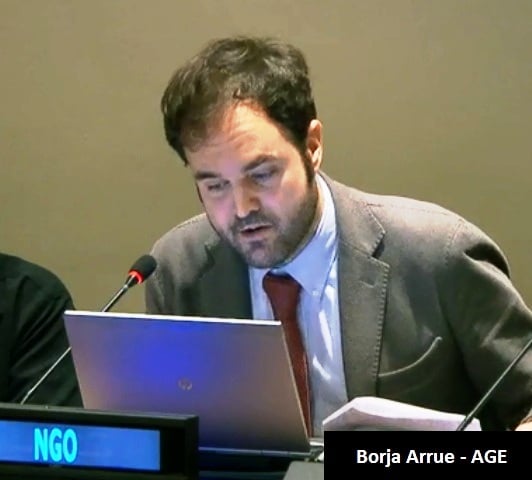
On the following day, on 25 July, a panel debate discussed older persons’ access to long-term and palliative care. Our statement pointed out the gaps in access to long-term care, the need for care and support services to shift towards ensuring the inclusion of older 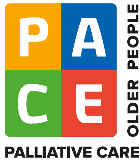
The plenary session on 26 July focused on normative elements around equality and non-discrimination, as well as freedom from violence, abuse and neglect. AGE took the floor to highlight the basic elements of the related rights and how they should be included in a potential new instrument.
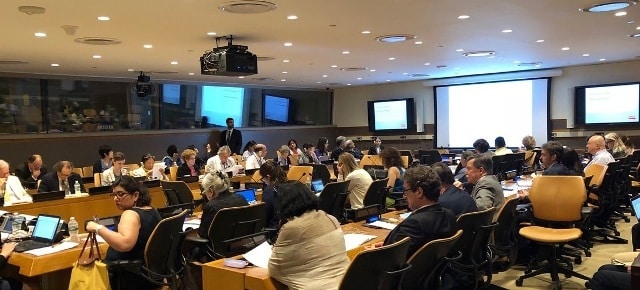
EU: open to further discussion
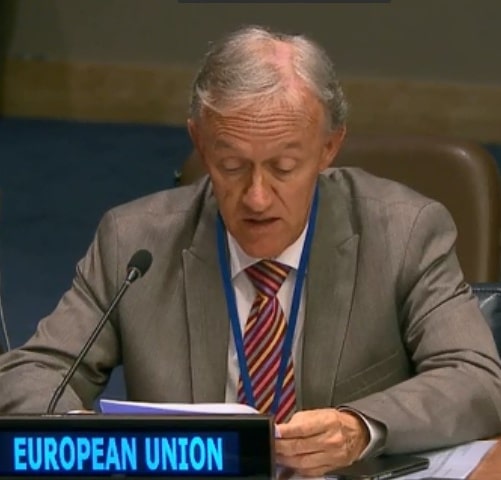
Towards the 2019 session
In conclusion, during the 2018 further arguments were put forward to build a strong case for a binding international instrument on the rights of older persons. Substantive and normative discussions are likely to continue in the next session, with the possibility that states move on to negotiating an outcome for each session starting from 2019. Next year’s session will deal with social protection, including social protection floors, and with education, lifelong learning and capacity building, as well as with normative discussions around long-term and palliative care and autonomy and independence.
For more details about the 2018 session of the OEWG, you may contact Borja Arrue, borja.arrue@age-platform.eu.
For any general questions or comments around AGE’s involvement in the OEWG and our work around human rights, you can contact Nena Georgantzi, nena.georgantzi@age-platform.eu.
Useful resources:
> AGE’s statements for the 9th session:
- Introductory statement
- Autonomy and independence
- Long-term and palliative care
- Normative elements on freedom from violence, abuse and neglect, and on equality and non-discrimination
> AGE’s submissions:
- Autonomy and independence
- Long-term and palliative care
- Normative elements on equality and non-discrimination
- Normative elements on freedom from violence, abuse and neglect
> Other interesting materials:
- Report of the 9th session by Borja Arrue, AGE’s Project and Policy Officer responsible for long-term care and elder abuse.
- Report of seminar on “Human rights of older persons” Brussels, organised jointly by AGE and the UN Human Rights Office, 12-13 April 2018
- Joint submission Autonomy, independence, long-term care and palliative care: A discussion paper – from AGE Platform Europe, HelpAge International, The Law in the Service of the Elderly and National Association of Community Legal Centres Australia.

